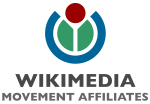組織の発展
国別協会 (37)
- CH Wikimedia CH
- GB Wikimedia UK
- KR 위키미디어 한국
- RU Викимедиа РУ
- US-NYC Wikimedia New York City
テーマ別組織 (2)
- CAT Amical Wikimedia
ウィキメディア利用者グループ (153)
- ESP-WE Wikiesfera Grupo de Usuarixs
- H-GAPS H-GAPS User Group
- MK-SK Shared Knowledge
- NGA-HA Hausa Wikimedians User Group
- NGA-IG Igbo Wikimedians User Group
- RU-Don Don Wikimedians User Group
- US-NE New England Wikimedians
- WJ WikiJournal
- WK? Whose Knowledge?
ウィキメディア運動の組織に提供されるサポートやトレーニング、共有知には現在、格差が認められます。
ウィキメディア運動の組織運営(支部、利用者グループ、テーマ別組織と当然ながら財団)はたいへん困難です。多くの問題に直面し、組織の経年により問題の種類はさまざまです。ボランティアの皆さんに問題と取り組む技術と自信を持っていただくことは、ウィキメディア運動の将来にとって重要な課題です。
原則
これらの課題の原則をいくつか示します。
- すべての人が取り組む課題です。ウィキメディア運動の組織に提供するトレーニングとサポートは、どこかひとつの責任部署が担当するという性格のものではありません(ウィキメディア支部協会への委任は成果が上がりませんでした)。これはすなわち、運動の参加組織には大なり小なりこの課題に責任があることを意味しています。
- 立ち上げを支援します。何か実験的な新しいことに取りかかる人を応援しなければなりません。どの問題も「即決」 する解決策がないからです。問題の全体的な解決策を求める代わりに部分ごとに着手し、実践可能な堅実な手順を踏んで進めることがより重視されます。
- 知識をあらゆるところから取り入れます。ウィキメディア運動の内外にはさまざまな人や組織があり、運動に対してそれぞれの視点を持っています。運動内部には技術や経験を提供しても良いという人がいるでしょう。運動外部にも助言を提供する国ごとの機関や国際組織が存在します。
- 計画、アイデアや成果は皆のものです。他の組織や団体が進める成長の構想から学ぶことは重要なアプローチです。
トレーニングと人材開発の需要
この問題の一面として、ウィキメディア運動の参加組織にとって成長に足りないものの需要を、体系的に把握できていないことがあげられます。
ウィキメディア財団(WMF)資金調達部門では複数の運動参加組織で運営陣から聞き取り、どんな課題があるか調査してデータを取りました。結果はこちらをご参照ください。

- 組織の統治(ガバナンス):
- 非営利団体の運営陣の役割:運営陣が自ら成長するには。
- 戦略開発:
- 戦略開発と効果的な目標設定の方法。
- 職員の採用と雇用の継続:
- Relationships between boards and EDs, defining boundaries, effective management.
- 個人の能力:
- 時間管理、対立や意見の食い違いの解決、交渉能力、ストレス管理。
- 理事会の能力:
- チーム構築を効果的に進めること。
- 年次計画立案ならびに報告を扱うこと。
- よくある落とし穴を避けながら、会期が複数日に及ぶイベントをうまく計画すること。
- ++ 気づいた点の追加をお願いします。
手法とリソース
研修ワークショップ
- 単発開催の場合、例えば ロンドンの研修会、2014年3月。
- ウィキメディア・カンファレンス/ウィキマニアに併設。
- ボランティア組織を対象に、全国/地域規模で開催
- ウィキメディアは赤十字その他の大規模ボランティア活動団体から何を学ぶか(English)(動画)では、ボランティアや愛好家が使える時間や興味範囲ごとに対応し、また状況の変化に対応して別の役割に移行できるように手助けする方法を述べます。
- 組織開発と研修関連のリソースの一覧。
利用者同士の査読と指導関係
利用者同士の査読は以下のごく少数が実施されました。
- 2013年3月:ウィキメディア・アルゼンチン協会のブログ投稿、最終報告書。
- 2013年4月、ウィキメディア・エストニア協会。
経験の共有
ウィキメディア運動の実体には、自らの学びの経験を記録し運動と共有しています。
- Wikimedia UK: February 2013 Governance Review and October 2013 followup audit.
- ウィキメディア・フランス協会:2012年から2014年の振り返り、ウィキメディア・コモンズに宛てたクリストフ・ヘナーのメール(English)
- WMF 組織統治の改善に結びつくリソース類。
オンラインの学び
戦略の開発
衝突の管理
- エッセー「交渉」、[beyondintractability.com Moving Beyond Intractability (MBI)].
- 講演「紛争を分析する」[https://www.wikidata.org/wiki/Q7762372 セイラー財団。]。
- 講演「紛争の管理」セイラー財団。
この課題についてウィキメディア運動内で助力を頼める人材
| 名前 | 言語 | 所在地 | 時間帯 | 専門 |
|---|---|---|---|---|
| Benjamin Mako Hill | en, am-1, fr-1 | Seattle | UTC-8 | ワシントン大学コミュニケーション系助理教授、関心分野は無償の知識/文化科学者/活動家 |
| Dariusz Jemielniak (Pundit) | pl, en-4, de-1, ru-1 | ワルシャワ/コペンハーゲン | UTC+2 | 経営学教授、関心分野はスタートアップ開発の戦略と技術 |
| Aaron Shaw | en | Chicago | UTC-6 | ノースウェスタン大学のコミュニケーション系助教授、専門研究はオンライン・システムへの動員と関与 |
| Piotr Konieczny | pl, en-4 | ソウル | UTC+9 | ソウル本拠の社会学助教授、専門研究は協働生産の管理 |
加筆願います
- AffCom の連絡体制、国・地域別協会/テーマ別組織/利用者グループ。
- 国・地域別協会ダイアログ:30分の動画。取材を受けたウィキメディア運動参加者94名は、提携団体やウィキメディア財団、FDC、提携団体委員会(AffCom) の出身。文書類、洞察のまとめを添えてあります。
やるべきこと
- 初代のスタッフを雇用するには
- ご担当の組織の活動計画と影響範囲など前提条件に重点を置くこと。管理構造の同意を取り交わすこと(ライン管理者1名に集中し理事会全体の対応ではない)
- 燃え尽き症候群を回避する方法を課題とする資料をより体系化する(ワークショップ2回で得たメモ/学びに基づく)
- 個人の能力、意思疎通・連絡の方法。個人の時間と望みを管理すること。
- 危機管理 (未整理)


